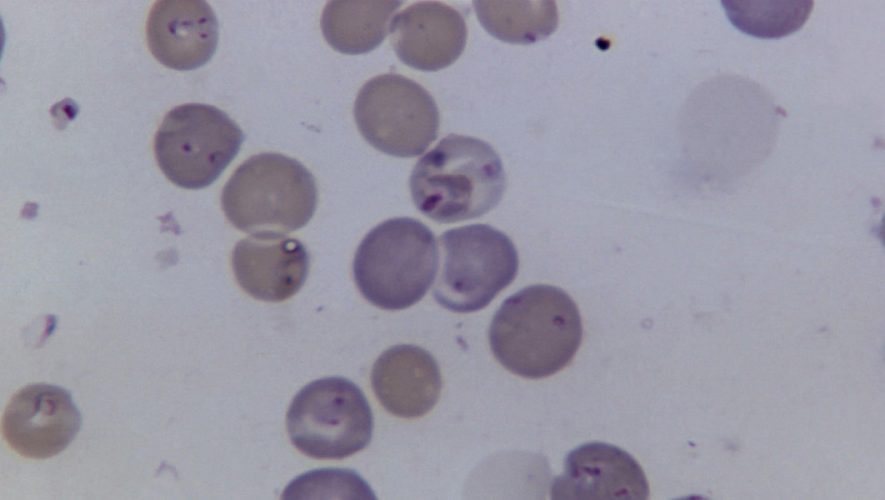Malaria parasites possess a de novo heme synthetic pathway. Interestingly, this pathway is dispensable during the blood stages of development in mammalian hosts. The assembly of the two most important hemeproteins, cytochromes c and c1, is mediated by cytochrome heme lyase enzymes. Plasmodium spp. possess two cytochrome heme lyases encoded by separate genes. Given the redundancy of heme synthesis, we sought to determine if heme lyase function also exhibits redundancy. To answer this question, we performed gene knockout experiments. We found that the PBANKA_143950 and PBANKA_0602600 Plasmodium berghei genes encoding cytochrome c (Pbcchl) and cytochrome c1 (Pbcc1hl)heme lyases, respectively, can only be disrupted when a complementary gene is present. In contrast, four genes in the de novo heme synthesis pathway can be disrupted without complementation. This work provides evidence that Pbcchl and Pbcc1hl are both essential and thus may be antimalarial targets.
Posayapisit, N.; Songsungthong, W.; Koonyosying, P.; Falade, M. O.; Uthaipibull, C.; Yuthavong, Y.; Shaw, P. J. and Kamchonwongpaisan, S. (2016) Cytochrome c and c1 heme lyases are essential in Plasmodium berghei. Molecular Biochemical Parasitology Vol. 210. No. 1-2, 32-36
 Dr. Mofolusho Falade serves as Professor of Global Health, Infectious Disease Specialist in the Department of Epidemiology & Infectious Diseases in the School of Ecological Mission at Missional University. His academic credentials include a B.S. in Zoology, University of Ilorin (NG); M.S. in Zoology, University of Ibadan (NG); Pre-doctoral training, Leiden University Medical Centre, (NL); and a PhD in Parasitology, University of Ibadan (NG). He has also served as a postdoctoral fellow at the Protein Ligand and Molecular Biology Laboratory, BIOTEC, (TH); and at the Max Plank Institute for Infection & Biology, (DE).
Dr. Mofolusho Falade serves as Professor of Global Health, Infectious Disease Specialist in the Department of Epidemiology & Infectious Diseases in the School of Ecological Mission at Missional University. His academic credentials include a B.S. in Zoology, University of Ilorin (NG); M.S. in Zoology, University of Ibadan (NG); Pre-doctoral training, Leiden University Medical Centre, (NL); and a PhD in Parasitology, University of Ibadan (NG). He has also served as a postdoctoral fellow at the Protein Ligand and Molecular Biology Laboratory, BIOTEC, (TH); and at the Max Plank Institute for Infection & Biology, (DE).


